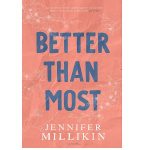Here is the summary of Dont Forget to Write by Sara Goodman Confino
In the digital age, where information is readily available at our fingertips, and social media platforms offer instant updates, the art of keeping a journal might seem outdated. Yet, journaling remains a timeless practice, a valuable means of self-expression, reflection, and preserving the stories of our lives. “Don’t forget to write” is a gentle reminder of the significance of this practice and its enduring relevance.
Journaling has been a cherished tradition for centuries. From the intimate diaries of historical figures to the personal journals of ordinary individuals, these records offer glimpses into the lives, thoughts, and emotions of those who put pen to paper. Journals serve as a repository of memories, a source of inspiration, and a record of personal growth.
Writing in a journal can take many forms. Some people use it as a tool for self-reflection, recording their daily experiences, thoughts, and emotions. Others turn their journals into creative outlets, weaving stories, poems, or sketches onto the pages. Whether kept as a daily habit, a travel journal, a dream diary, or a space for goal setting, a journal is a place to explore, create, and document the journey of life.
One of the most significant benefits of journaling is its ability to promote self-awareness. When we write about our experiences, emotions, and thoughts, we gain insight into our inner world. We can trace patterns of behavior, identify triggers for stress, anxiety, or joy, and discover our strengths and weaknesses. This self-awareness allows us to better understand ourselves, leading to personal growth and positive changes.
Moreover, a journal acts as a safe and non-judgmental space for emotional expression. It provides an outlet to release pent-up feelings, celebrate achievements, and process life’s challenges. Writing about difficult experiences can be therapeutic, helping us cope with trauma, grief, or stress. It’s a way to heal, transform, and find solace in the act of sharing our stories with ourselves.
For many, a journal is a form of mindfulness and a means to cultivate gratitude. When we write about the small joys and daily wonders, we acknowledge their presence in our lives. We learn to appreciate the beauty in the mundane, the kindness in others, and the progress we’ve made. Gratitude journaling reminds us of the abundance we have, even during difficult times.
Furthermore, a journal provides clarity and structure to our thoughts. When we put our ideas on paper, they become more tangible and organized. Journaling helps us prioritize our goals, set intentions, and track progress. It’s a method of planning, problem-solving, and unleashing creativity. Journals are the birthplace of ideas, a place where we can brainstorm, sketch, or draft without judgment.
Beyond personal benefits, journaling can have a profound impact on memory preservation. Unlike digital records, handwritten journals create a tangible connection to the past. These handwritten accounts of life become invaluable time capsules, chronicling personal experiences, stories, and milestones. Reading through old journals can invoke a sense of nostalgia, gratitude, and reflection, connecting us to our past selves and the life we’ve lived.
Journals also serve as a medium for self-discovery and identity exploration. They allow us to examine our values, passions, and interests. Over time, they become a record of our evolving selves, mirroring the changes in our beliefs, dreams, and aspirations. They remind us of our past dreams and intentions, helping us stay grounded and focused.
The act of writing by hand in a journal offers a different experience than typing on a keyboard. It engages the senses, stimulating creativity and mindfulness. The tactile sensation of paper and the flow of ink from pen to page can be deeply therapeutic. Writing by hand allows for a more intimate connection to our thoughts and emotions, as the process becomes a physical extension of the self.
In the hustle and bustle of our daily lives, we often forget to pause, reflect, and preserve our stories. The simple act of sitting down with a journal is an opportunity to slow down, disconnect from screens, and connect with our inner selves. In this era of constant distractions, the “don’t forget to write” reminder becomes increasingly important.
Keeping a journal doesn’t require literary prowess or artistic talent. It’s a personal endeavor, and the only requirement is an open heart and a willingness to put pen to paper. The act of journaling is a gift to oneself, a gesture of self-care that nurtures the mind, heart, and soul. It’s an act of self-compassion and self-acknowledgment, a way to honor one’s journey and experiences.
So, don’t forget to write. Whether it’s in the form of daily musings, creative expressions, or gratitude lists, the practice of journaling is a timeless gift to yourself. It’s a reminder of the beauty in reflection, the power of self-awareness, and the lasting impact of capturing the stories of your life. A journal is not just a book; it’s a sanctuary for your thoughts, emotions, dreams, and memories.
Relevant File technicalities:
. Name of Title: Radar
. Author Name: Dale Mayer
. Language for Reading: English
. Supportive Formats: PDF/ePub
. Cost For Getting: Free to Download
. Genre: Coming of Age Fiction
. Series: None
. Price: Free
. Publish Date Sep 1, 2023
Dont Forget to Write by Sara Goodman Confino Download PDF
Download your desired file snap on the button specified below to download Dont Forget to Write by Sara Goodman Confino. The download method is fully financed without any spammy or broken links with the infant quality of PDF and ePub. All the links on our servers are quick, clean, and free from panic and spammy advertisements. You may also like Darkness of Time by Sara Samuels PDF Download








